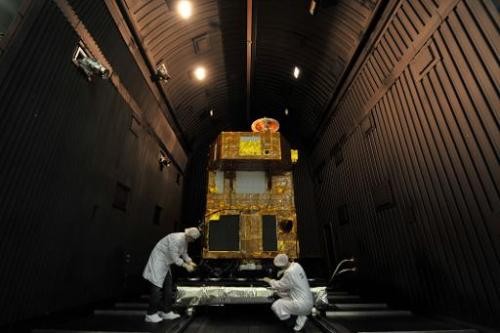Chinese President Xi Jinping and Brazilian President Dilma Rouseff pledged on Sunday to further develop the bilateral science and technology cooperation between the two countries.
Both presidents emphasized their consensus in the congratulatory messages they exchanged during the launch of the Long March-4B rocket carrying the CBERS-4 satellite, which is co-developed by the two countries, from the Taiyuan launch site in China on Dec. 7.
Xi noted in his message that the China-Brazil Earth Resources Satellite (CBERS) Program has established a good example in conducting space cooperation between developing countries.
According to Xi, the CBERS program made improvements in the technological and scientific levels of China and Brazil and has generated a great deal of contribution for the social and economic development of both countries.
The Chinese president said that the CBERS-4 satellite launch is the 200th of the Long March rocket family. Xi added that it showed the latest accomplishment of the bilateral CBERS program.
Xi said that he is hoping that China and Brazil would agree on a decade-long bilateral space cooperation program and to further develop their innovation in technology.
Meanwhile, Rousseff said that their CBERS Program demonstrates the potential of collaboration in scientific and technological innovation among developing countries.
Rousseff added that the program is also historically significant as both countries will be sharing satellite images with Latin American and African countries under the South-South Cooperation.
The Brazilian president also said that the recent launch of the CBERS-4 satellite increased the development of both countries' strategic partnership. She added that Brazil will continue to support the CBERS Program.



























